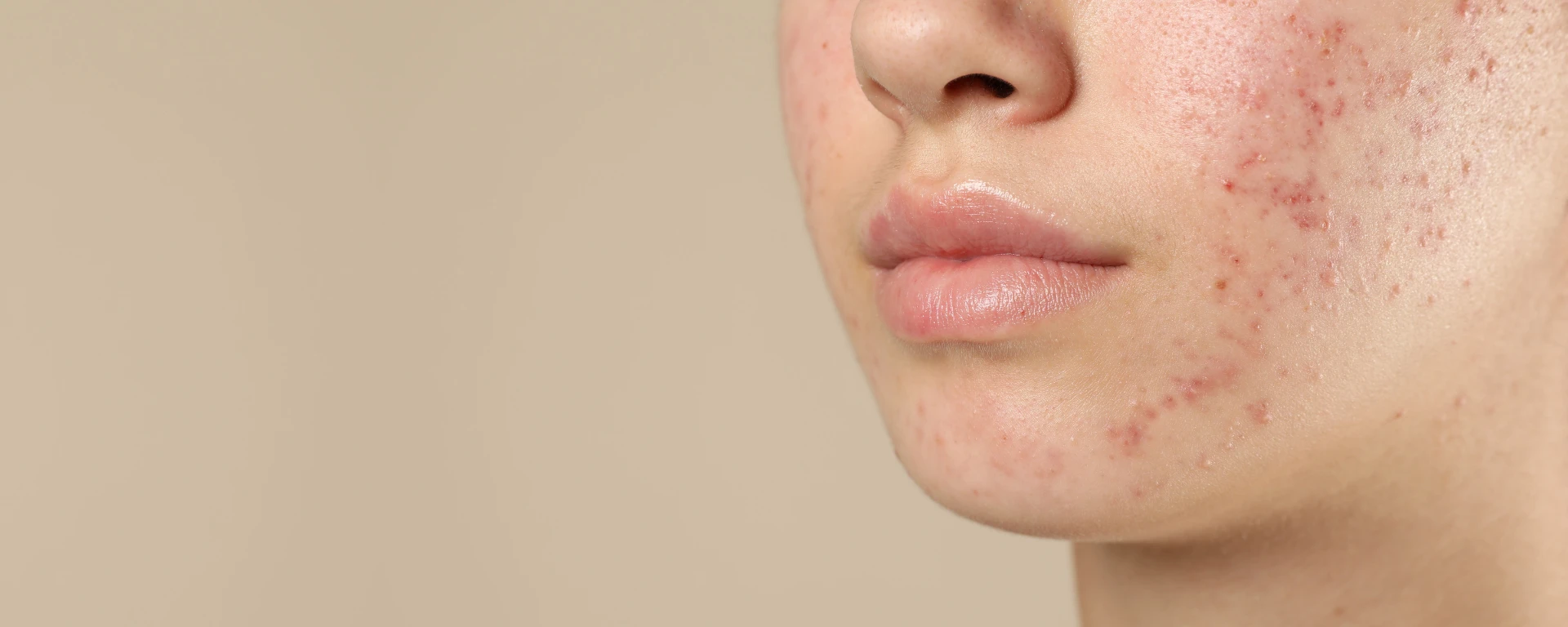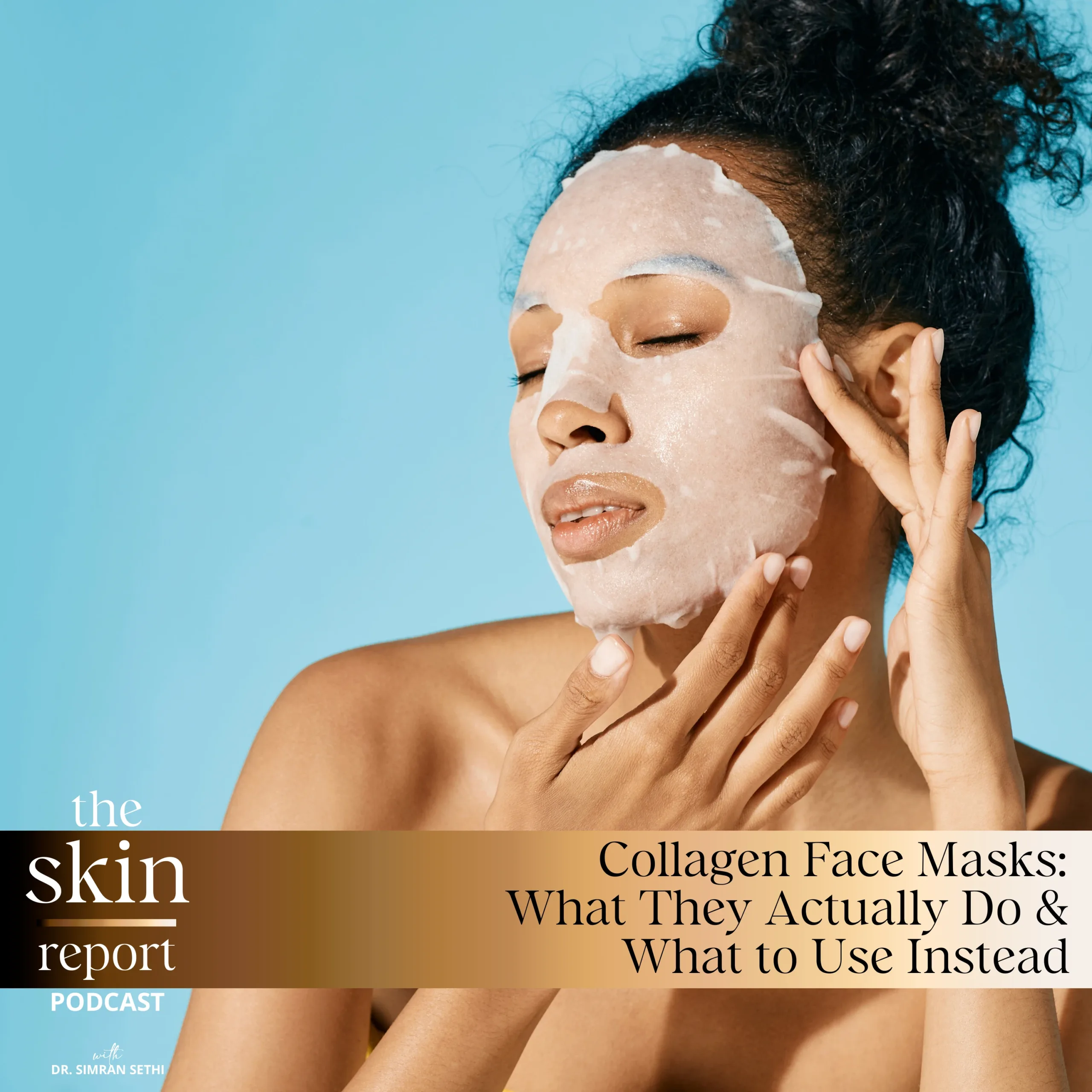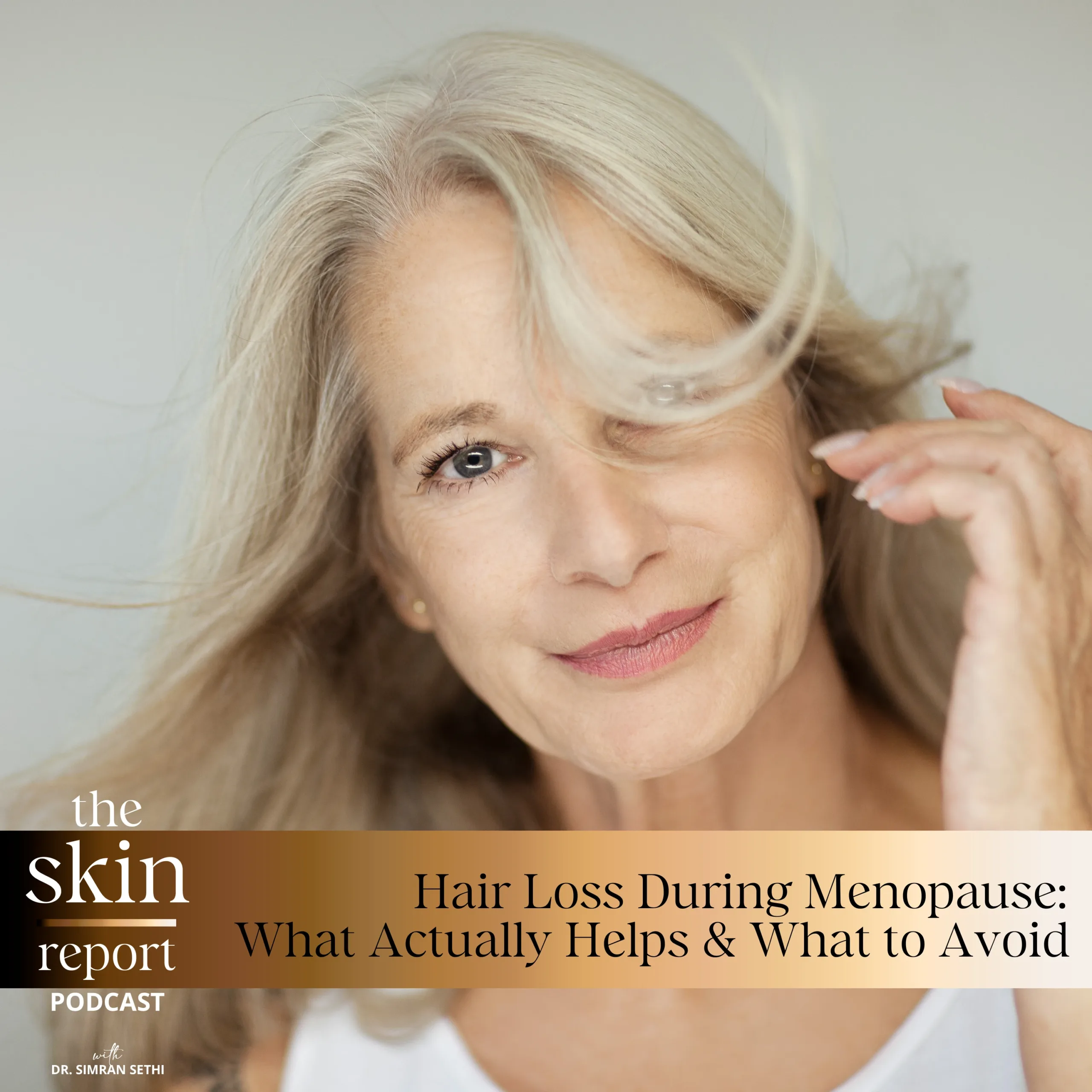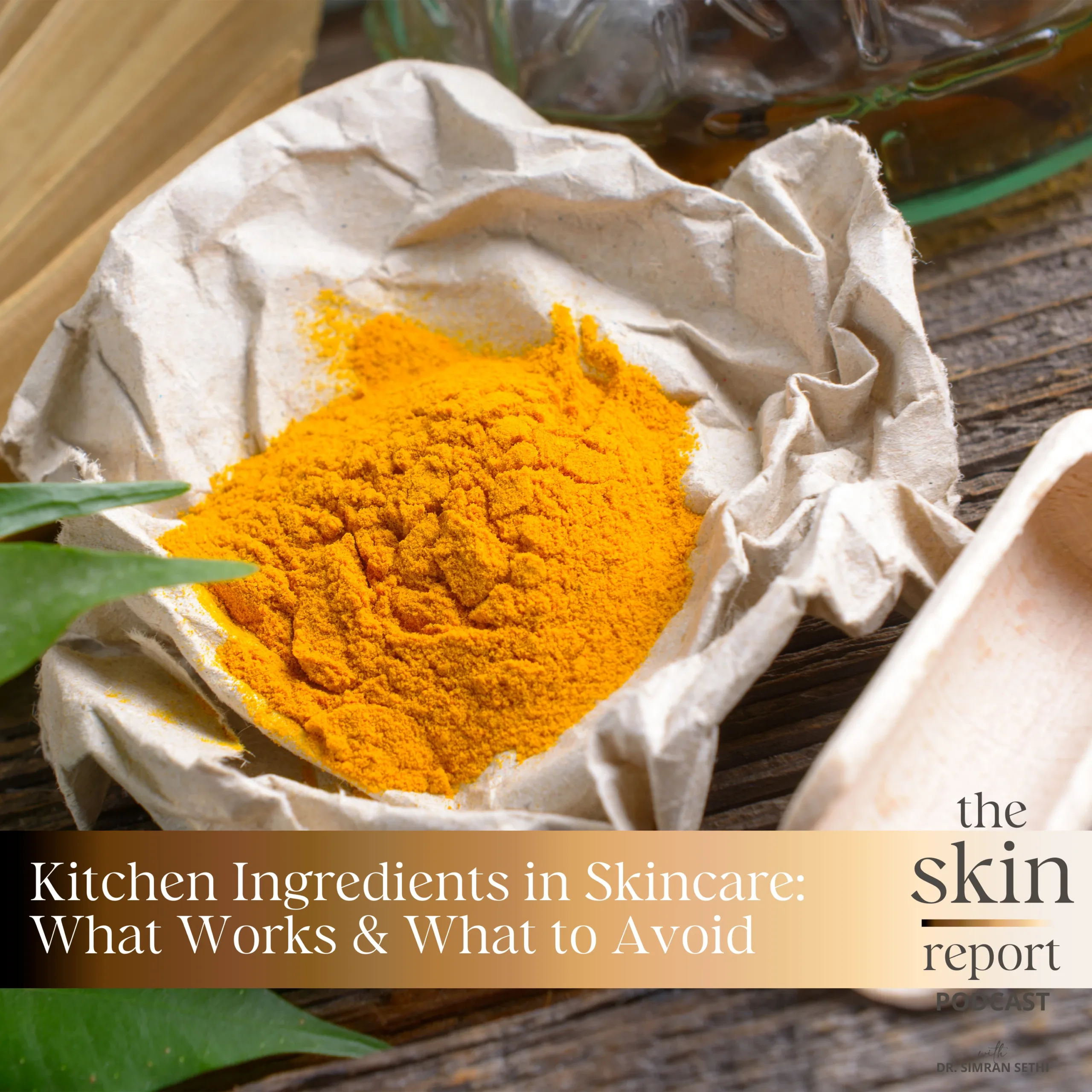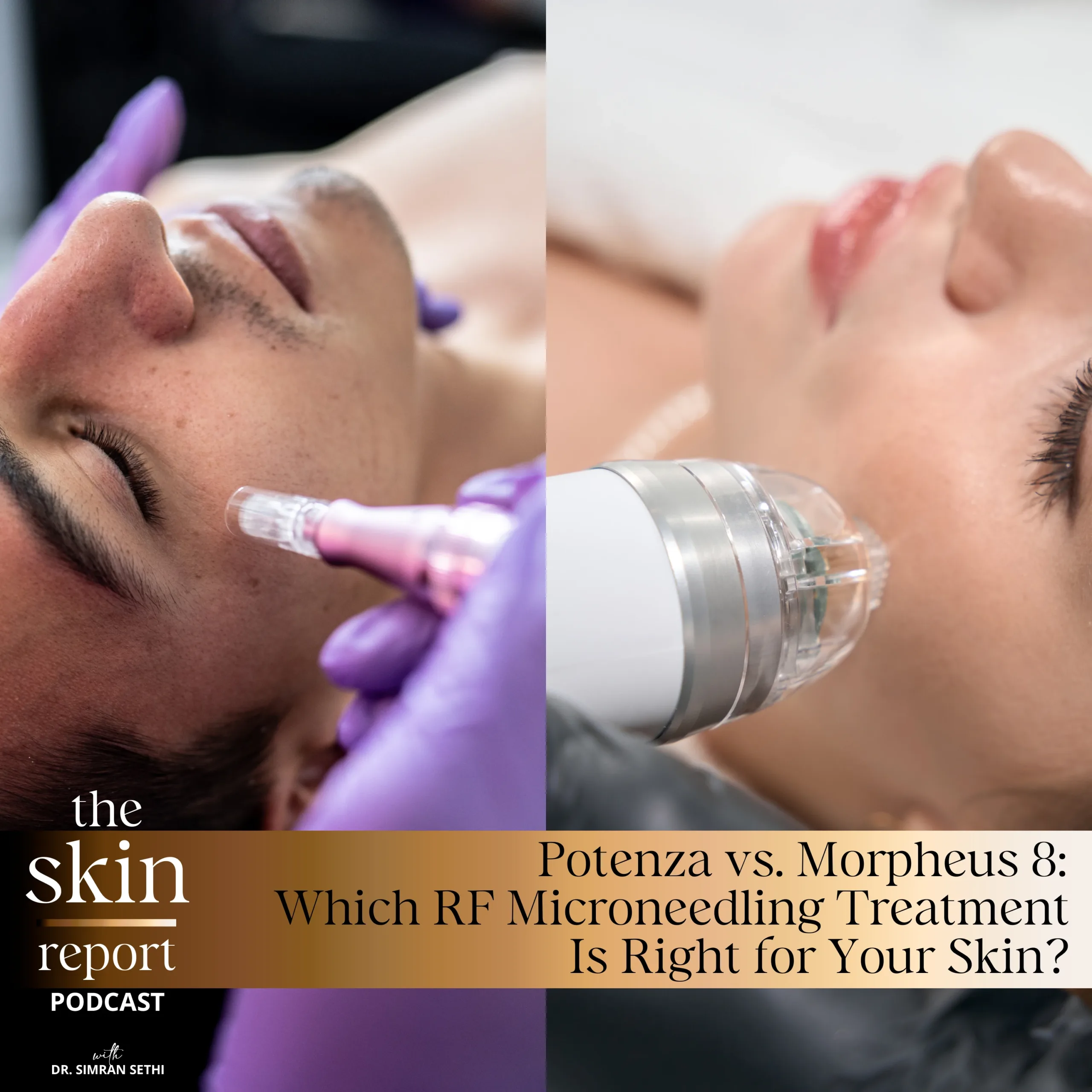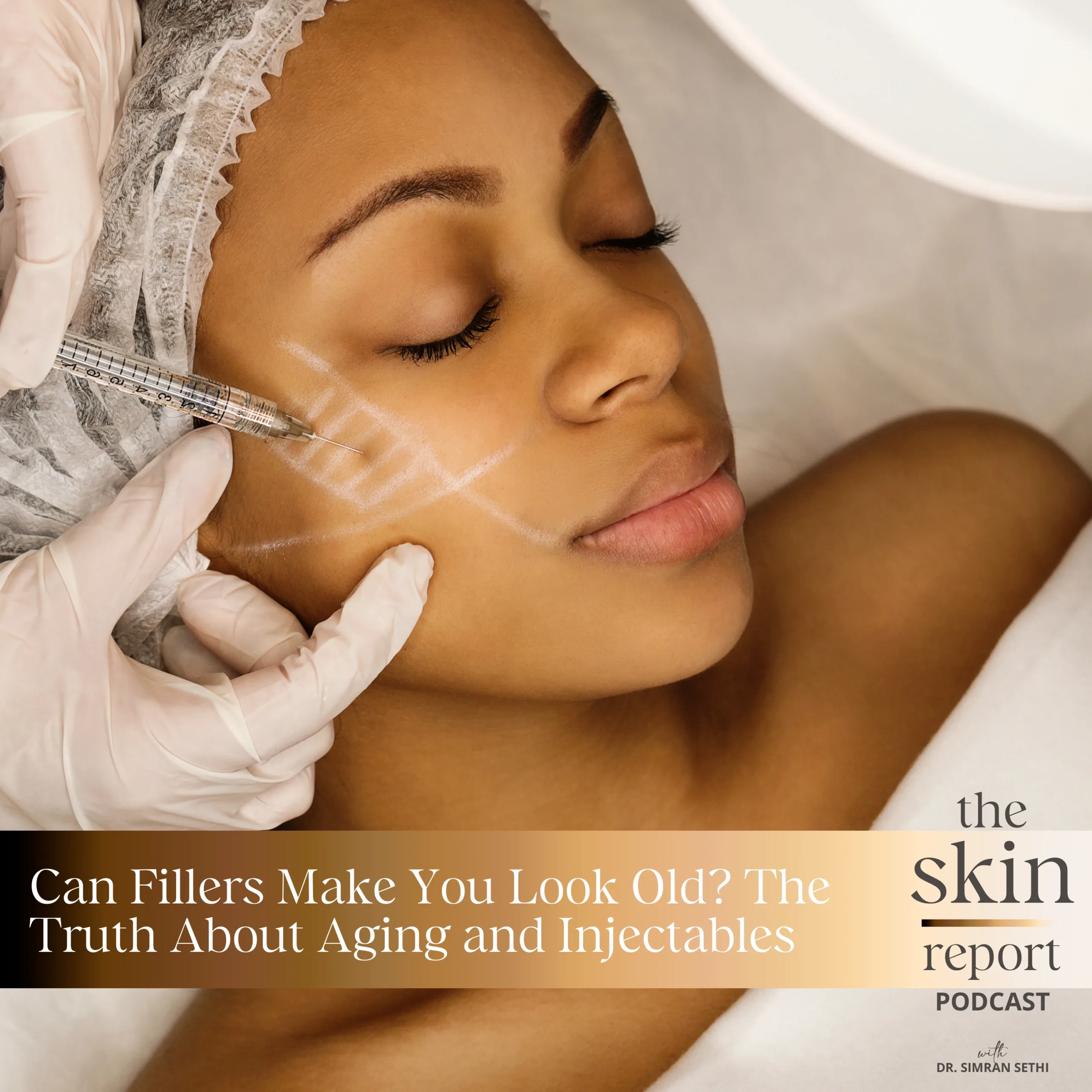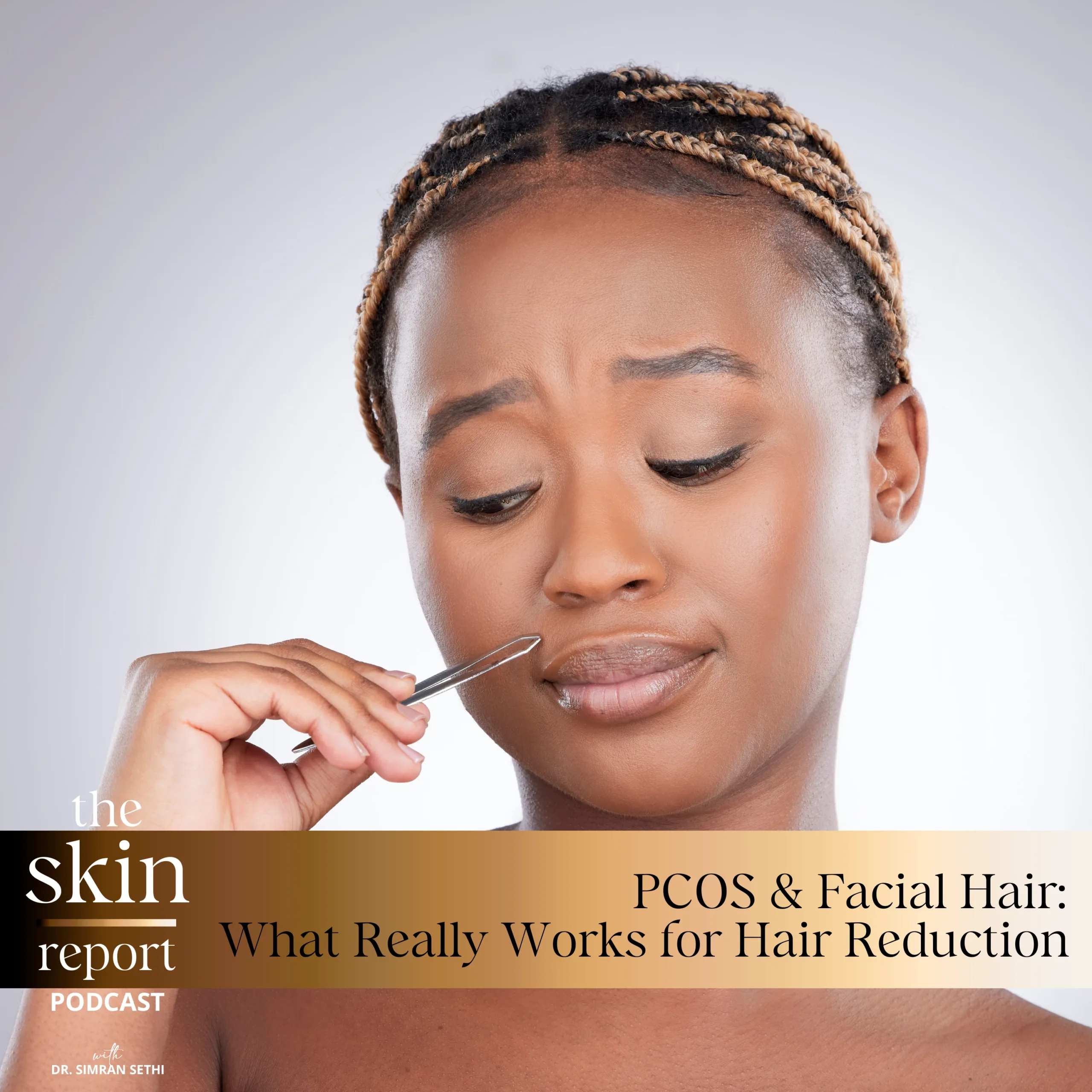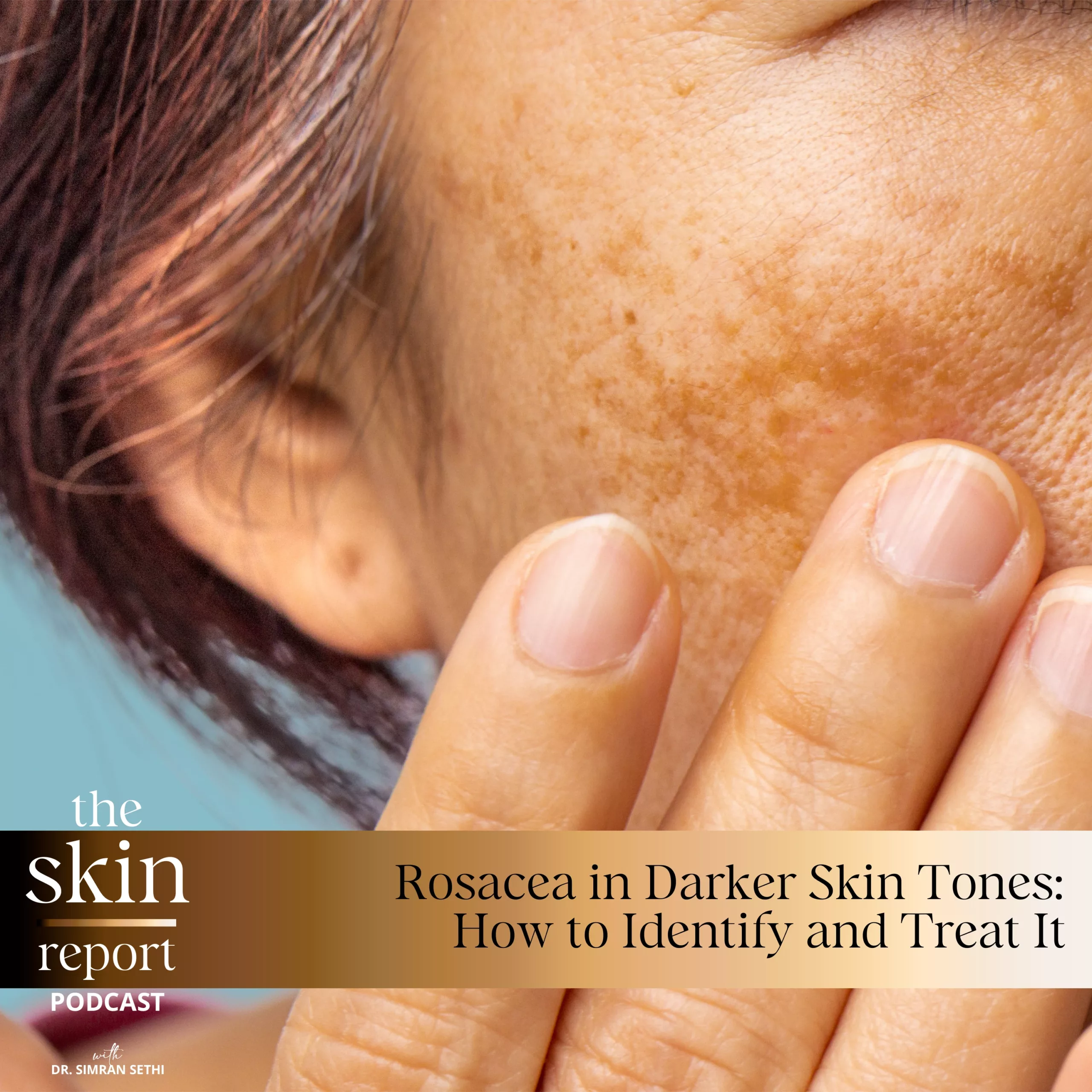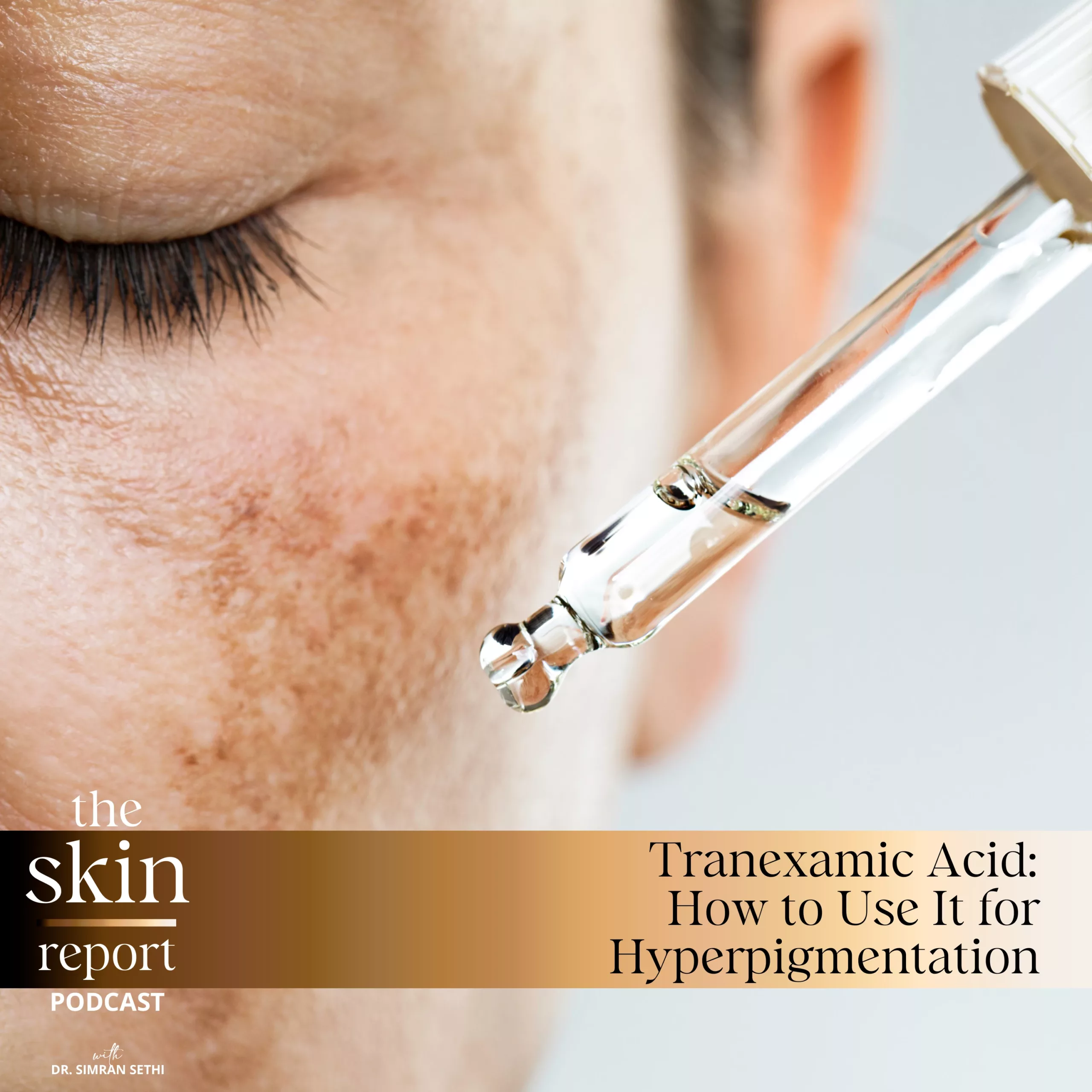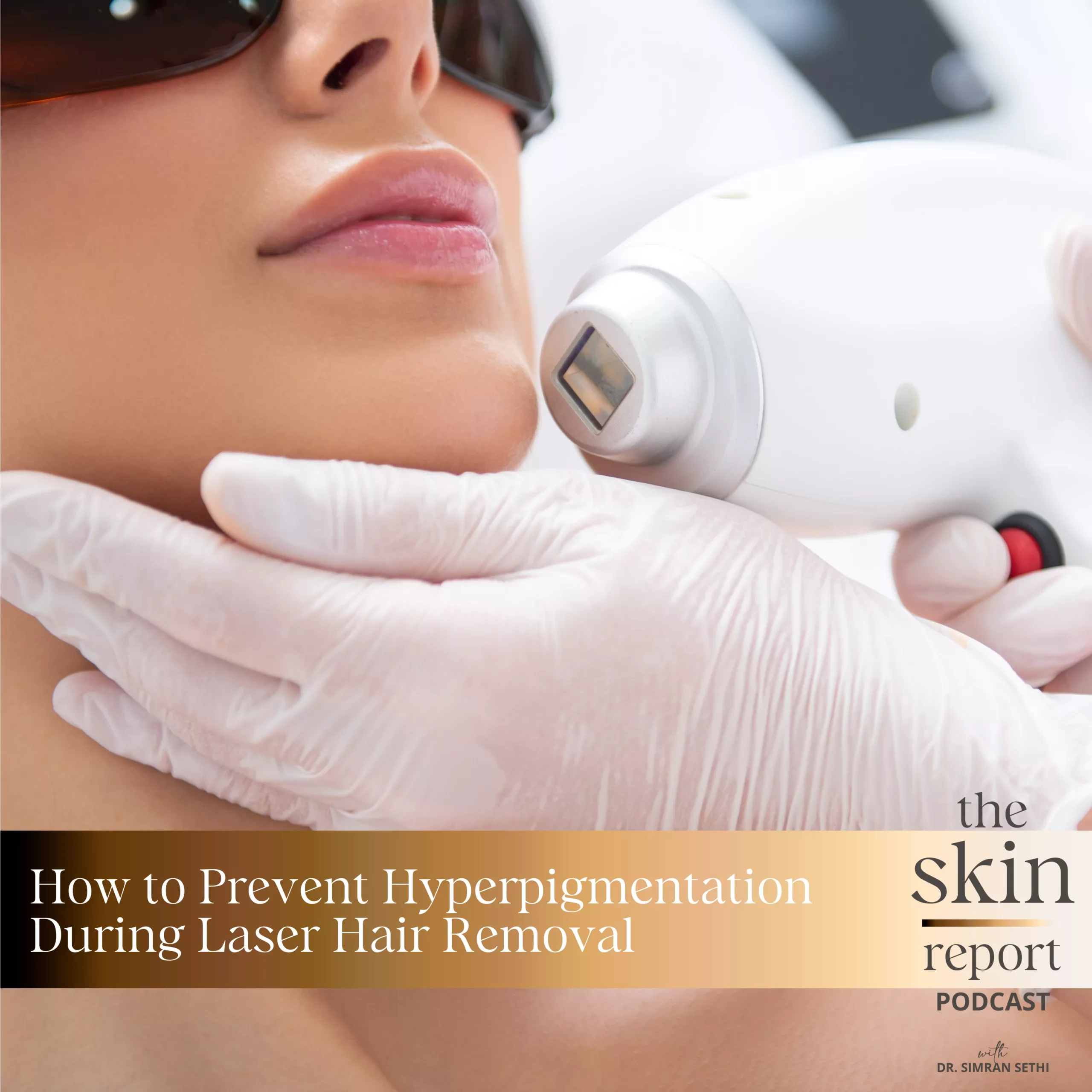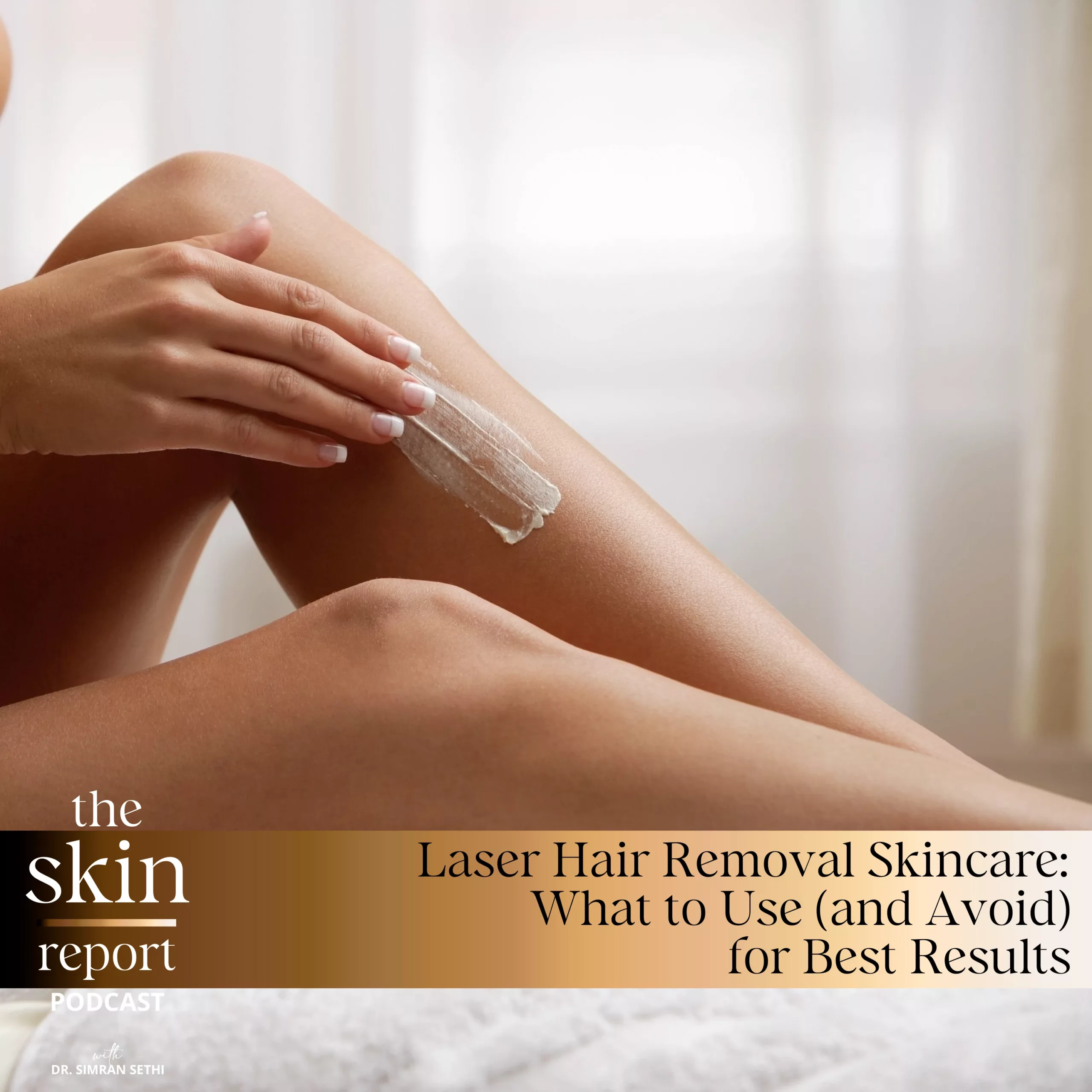Acne and Hair Growth from PCOS:
What Women of Color Need to Know
💡 How do hormones, acne, and excess facial hair connect—and what can women of color do about it?
In this episode of The SKIN Report, Dr. Simran Sethi explores how polycystic ovarian syndrome (PCOS) leads to acne and unwanted hair growth, and why these symptoms can be even more challenging for women with deeper skin tones. From medications like spironolactone to treatments like laser hair removal, Dr. Sethi shares expert advice on managing PCOS safely and effectively.
👉 Topics covered:
✔️ What is PCOS and how it affects the skin
✔️ The role of androgens in acne and facial hair growth
✔️ How spironolactone works (and who it’s right for)
✔️ Why laser hair removal isn’t one-size-fits-all for skin of color
✔️ Safe skincare routines for acne and hyperpigmentation
✔️ Tips on exfoliation, retinol, moisturizers, and more
🔔 Don’t forget to subscribe and turn on notifications to stay updated with expert skincare insights!
Exclusive Offer for the Skin Report Audience:
Use SKINREPORT20 in the shopping cart to receive 20% discount
LEARN MORE!
The Skin Report Podcast : Subscribe and Download!
Skin By Dr. Sethi – Blog
Skin By Dr. Sethi – Skincare
Skin By Dr. Sethi – Beauty Instagram
Dr. Sethi’s Medical Spa
Dr. Sethi’s Medical Spa – Instagram
Hello everyone. I’m Dr. Sethi and we are going to talk about acne when you have polycystic ovarian syndrome, and I’m going to specifically talk about PCOS in different skin tones. Welcome to The Skin Report and let’s get started. Polycystic ovarian syndrome or PCOS is a condition that we are learning more about in medicine over the decades, but it’s a condition that is common amongst women in their twenties to thirties. PCOS is a condition where there is a slight increase in the amount of androgens, hormones like testosterone, in the body which leads to different symptoms. Now, PCOS has a wide variety of symptoms and it’s generally considered a clinical diagnosis. In medicine, when we refer to clinical diagnosis, we’re referring to taking a look at all the symptoms that the patient is experiencing and not relying entirely on blood tests or diagnostic studies because those don’t always yield to the answer. The entire spectrum of symptoms is really what gives us the diagnosis.
Now in PCOS, the most common symptoms that I see in the aesthetic world include excess hair growth and acne, and a lot of times people come in looking for solutions for these problems and don’t realize that they have PCOS. So I’ve made that diagnosis in a number of my patients because they’re usually looking for a solution for their excess hair growth and their acne. The other interesting thing about PCOS is even though it’s a hormone-related condition, it doesn’t always cause a disruption in your menses. So just because you have normal periods, you may still have PCOS because you may have the other symptoms, and those include the excess hair growth, namely in the face, in the lower face, the neck and even the chest, or you may have hormonal acne that can really occur on any part of the face, the chest, back, arms.
Some women with PCOS actually don’t have any of these symptoms, but they do have more issues with weight loss and gain weight and they have insulin resistance. I’m not going to talk about all the symptoms of PCOS and just focus on the excess hair growth component and acne part of it in this episode, and I’m combining the two because a lot of time acne worsens with excess hair growth. But first, let’s specifically talk about solutions for acne and excess hair growth because they’re usually the same. Number one, being put on a medication that slightly reduces that androgen excess, and spironolactone is a medicine of choice for that. A lot of people will undergo a few months of using birth control to see if that reduces their symptoms, but I found that that generally is not very effective and most women benefit and do end up having to go on spironolactone.
Spironolactone is actually a hypertension medicine, which interestingly lowers the amount of testosterone our body is producing. It does this to a slight extent so that you don’t have the negative effects of not having enough testosterone, but have the positive effects of reducing the testosterone to the extent of reducing excess facial hair growth and acne. Some people cannot tolerate spironolactone because it may cause a disturbance in their potassium balance or it may cause their blood pressure to go down. So this is a medication that you want to be put on but monitored on because it can have some side effects in rare cases, but it can still happen.
While you’re in spironolactone, it’s a great time to also start addressing hair reduction and acne reduction. Number one, laser hair removal is the treatment of choice when you are looking at excess hair growth reduction. If you were to embark on a journey of laser hair removal without being on some sort of oral medication to internally reduce that signal of producing more facial hair, you are not going to have a very successful outcome with laser hair removal. Laser hair removal along with medications like spironolactone or birth control, if that’s working for you, can be very successful in reducing facial hair growth in women with PCOS.
Women with PCOS always describe having so much hair growth that when they shave, exactly the next day, they have all this hair growth come back on their face and chest. The hair growth usually also tends to be thick and coarse, which causes a lot of changes in the skin because they are shaving frequently and also start experiencing hair growing in different direction or what we call keratosis pilaris. When you are doing laser hair removal, make sure that if you have skin of color that your provider is familiar with your skin tone, because even though laser hair removal has been around for a long time, there are different ways of doing it based on your skin tone.
Before I go into acne with PCOS, let me talk a little bit about other modalities to reduce facial hair growth in PCOS. Electrolysis, waxing, plucking, shaving, threading are common modalities a lot of women with PCOS will use for a facial hair growth reduction. Now, waxing, threading, plucking, shaving are modalities that you can do at home or at a salon, but they have to be done very, very, very frequently, usually few times a week. This can be very traumatic for your skin, and if you have a darker skin tone, you are likely going to start experiencing hyperpigmentation in those areas. I’ve seen a lot of women come in with a shadow of hyperpigmentation around their mouth, on their chin, sometimes even onto their neck because they were having to go in and get waxed at least once a week to twice a week, or they’re shaving or plucking almost daily to reduce that thick hair growth.
Another modality that’s pretty popular with women with PCOS is electrolysis. Now electrolysis has been around for decades and it is an effective way to permanently reduce hair. However, it can cause a lot of hyperpigmentation and scarring when done in darker skin tones. So if you are going to embark on a journey of electrolysis on your facial hair, do make sure that your provider is very familiar in treating your skin tone type because electrolysis is definitely very prone to acne, or scarring, I should say, and hyperpigmentation.
Now, let’s get into acne. Acne from PCOS is, again, a hormonally-driven condition, which means that you do need to be on some sort of oral medication to reduce the production of that excess testosterone and balance your hormones better. If you are not willing to take an oral medication for control of acne with PCOS, you are likely going to have a very limited response to topical application of products. And I say this because I do see this as a common concern in my clinic where women don’t want to be on oral medication to tackle acne, but sometimes they do have to do this for a short period of time, and when I say short, it could be a year to a few years until their hormones start balancing better and they’re naturally producing less testosterone.
So again, if you have acne from PCOS, the number one thing you should consider is being on a medication like spironolactone or birth control. Even with acne, I still find spironolactone is a lot more effective than birth control alone. Once you’re on an oral medication for your PCOS acne, you can take on a nice regimen of monthly facials to deeply exfoliate the skin and undergo extractions. This is going to help clear your skin from all the previous acne you’ve had and also make sure that your follicles are nice and clean and you don’t develop other pustules or breakouts.
In terms of your skincare routine, it’s important to start a retinol so that you can increase your skin cell turnover and start erasing any acne scarring or post-inflammatory hyperpigmentation, which is a common side effect of acne in darker skin tones. Second, make sure that you are using some sort of serum to reduce excess oil production, which typically is in the T-zone area or could be the whole face, because even if you are on an oral medication for acne suppression, you can still get breakouts because you have excess oil production.
Now, even though I said you should reduce your oil production with some sort of oil-reducing serum, make sure you are not overdoing this, which means that if you are naturally an oil producer, you still need to have a moisturizer on board that hydrates the skin. So this moisturizer will help keep your skin barrier intact and also keep you from having post-inflammatory hyperpigmentation, especially if you have a darker skin tone. Finally, make sure you are exfoliating appropriately. When you have oily skin, likely you are over-exfoliating. That is a very, very common issue that I see in people who have acne or are oil producers naturally and exfoliating with a mechanical and a chemical modality is perfect. You just have to make sure that you’re not overdoing it.
And when I say that, that means don’t exfoliate with facial brushes or cloths. Instead, use a fine-particle mechanical scrub that’ll help remove dirt and debris from the surface of your skin. Then use a chemical exfoliant like a glycolic acid that will go in and really deeply clean your pores because your pores are the ones that are usually sort of left behind in the mechanical exfoliation process, so you do need to go in and give it another deeper cleaning with a chemical exfoliant. If you’re finding that your skin is getting very red or sensitive, you are likely over exfoliating or you’re under moisturizing. So the first culprit usually is over exfoliation, and if you’ve brought down your exfoliation from doing it daily to three to four times a week and you’re still sensitive, start addressing the type of moisturizer you’re using.
Use a hydrating moisturizer, and if that is not enough for your skin, switch to a lipid-rich moisturizer. Acne and excess hair growth in PCOS is a very common symptoms that a lot of women suffer with, and if you have a darker skin tone, you likely also will have a lot of hyperpigmentation caused by the excess hair growth leading to hair reduction with things like waxing, plucking, shaving, and post-inflammatory hyperpigmentation from acne and acne scars. There are ways to tackle this, but you also have to consider oral medications, which we talked about, and a skincare routine that supports skin barrier retention while increasing exfoliation, reducing sebum production to reduce acne breakouts.
If you know you have PCOS and have experienced any other symptoms we haven’t discussed, please leave it in the comments. Otherwise, if you haven’t already done so, please subscribe, turn on your notification bell so that you always know when we release new content.

